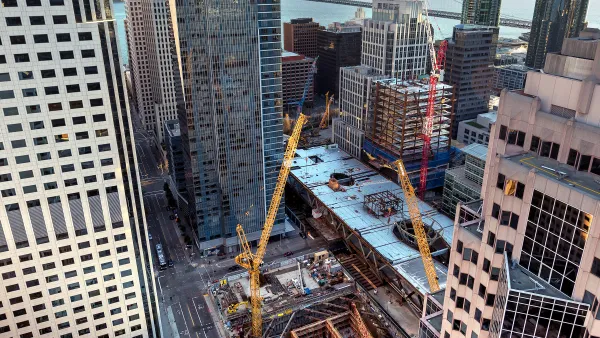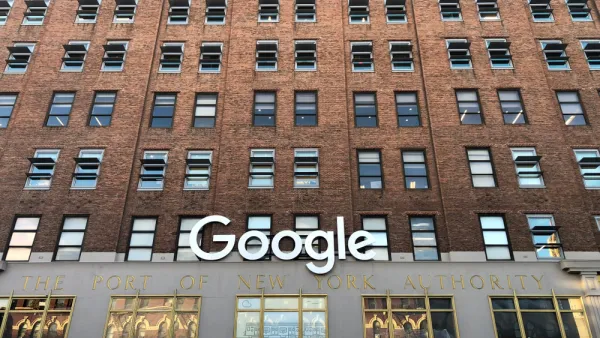New multibillion-dollar affordable housing commitments from leading tech firms may build out thousands of units, but that's nothing next to California's gargantuan housing shortage.

"The cost of housing has caused people to flee one of the hottest job markets in the nation, in one of the most beautiful places on earth," writes Conor Dougherty of the Golden State's housing crisis.
This year, Google, Apple, and Facebook have all thrown in billions of investment dollars to address the shortage. Though laudable, those efforts alone probably won't make much of a difference. One reason is the absurdly high cost of subsidized housing. A single unit in California averages around $450,000, and that figure balloons even higher in the big metros, Dougherty reports.
"Given those figures, the $4.5 billion that Google, Apple and Facebook have earmarked would create about 10,000 housing units." But against the state's housing deficit of roughly 3.5 million units, that's a pittance.
FULL STORY: Why $4.5 Billion From Big Tech Won’t End California Housing Crisis

Analysis: Cybertruck Fatality Rate Far Exceeds That of Ford Pinto
The Tesla Cybertruck was recalled seven times last year.

National Parks Layoffs Will Cause Communities to Lose Billions
Thousands of essential park workers were laid off this week, just before the busy spring break season.

Retro-silient?: America’s First “Eco-burb,” The Woodlands Turns 50
A master-planned community north of Houston offers lessons on green infrastructure and resilient design, but falls short of its founder’s lofty affordability and walkability goals.

Test News Post 1
This is a summary

Analysis: Cybertruck Fatality Rate Far Exceeds That of Ford Pinto
The Tesla Cybertruck was recalled seven times last year.

Test News Headline 46
Test for the image on the front page.
Urban Design for Planners 1: Software Tools
This six-course series explores essential urban design concepts using open source software and equips planners with the tools they need to participate fully in the urban design process.
Planning for Universal Design
Learn the tools for implementing Universal Design in planning regulations.
EMC Planning Group, Inc.
Planetizen
Planetizen
Mpact (formerly Rail~Volution)
Great Falls Development Authority, Inc.
HUDs Office of Policy Development and Research
NYU Wagner Graduate School of Public Service




























